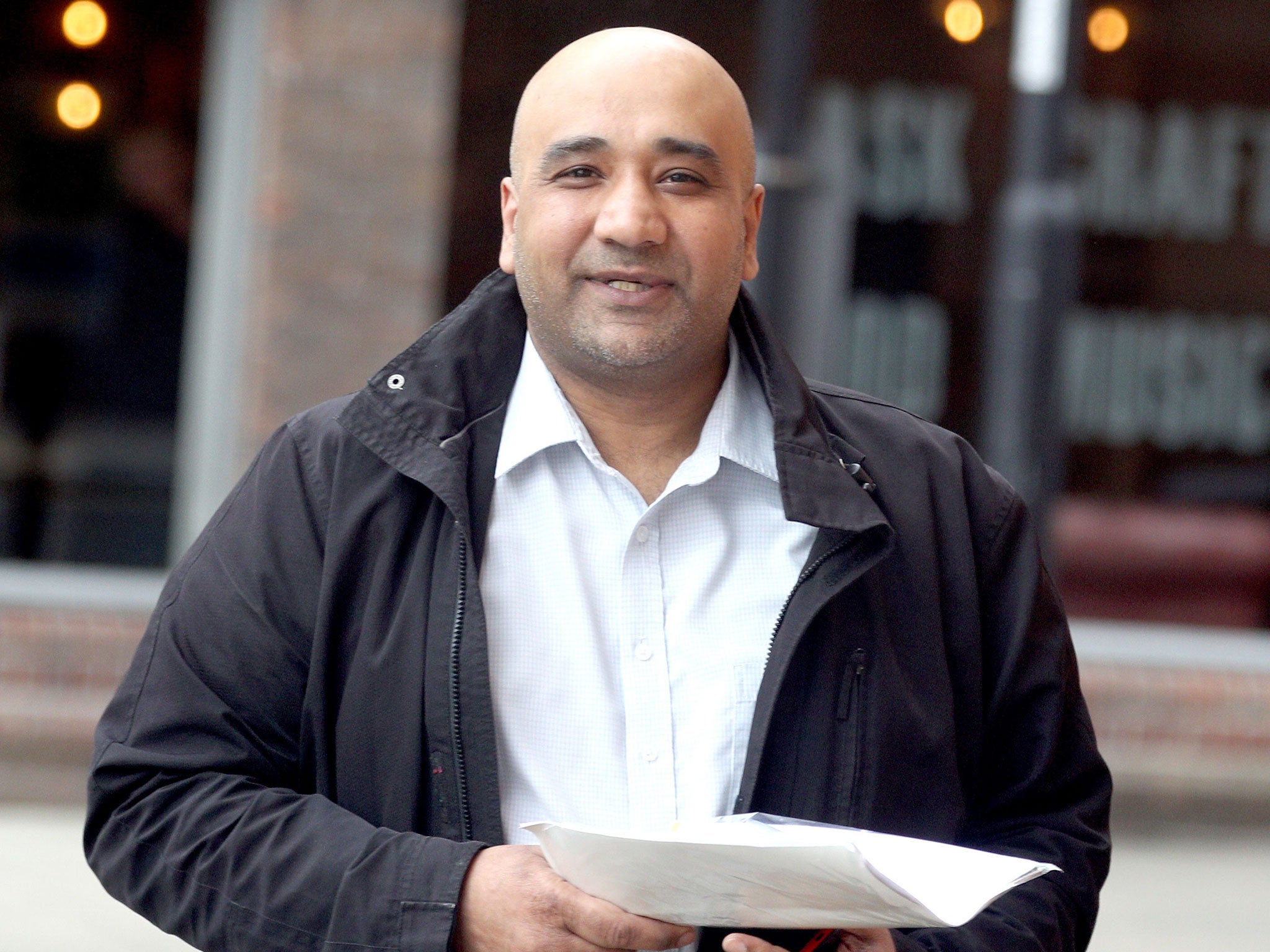Takeaway owner jailed for enslaving homeless alcoholics and drug addicts in 'despicable' crimes
Harjit Singh Bariana made victims clean sewage pipes by hand, court hears

A chip shop owner who enslaved homeless alcoholics and drug addicts has been jailed for his “despicable” crimes.
Harjit Singh Bariana made his victims work for up to 13 hours a day at his businesses in Blyth, Northumberland, in return for food, drink and shelter.
He has been jailed for eight-and-a-half years after being found guilty of six modern slavery offences, and handed an indefinite Slavery and Trafficking Prevention and Risk Order to restrict his activities when he is freed.
Newcastle Crown Court heard the 46-year-old targeted vulnerable men, took all their housing benefit as payment for “accommodation” and forced them to work.
Those who refused were faced with violence and intimidation, police said, forcing them to live in squalid conditions and work in their bare feet on tasks including cleaning sewage pipes by hand.
It was not until police raided a property linked to anti-social behaviour and drug use that Bariana’s offences were uncovered.
“They found a number of men living in horrendous conditions who were initially too terrified to speak about their ordeal,” a spokesperson for Northumbria Police said.
Bariana initially claimed his tenants were lying but was arrested and charged with eight offences under the Modern Day Slavery Act.
Judge Sarah Mallett told him: “This was, in my view, commercial exploitation.
”Your business model was largely predicated on free labour and the most minimal expenditure into your business to extract the maximum profit.“
Bariana, who had previous convictions for dishonesty, illegal money lending, selling counterfeit goods and making threats, ran takeaways and rented rooms in multi-occupancy homes to people at risk of becoming homeless.
Victims feared losing shelter if they did not comply with his demands and one man had his shoes, belt and watch removed to stop him from going missing and avoiding work.
One alcoholic, who had just been released from prison, was paid in alcohol and Diazepam tablets for five months of work in one of Bariana’s takeaways.
Another victim told his probation officer he was being forced to work 10 hours a day for no pay, and was given food and soft drinks instead.
Judge Mallett said there was bullying, threats, slaps and violence which included causing one person to fall down the stairs.
She added: ”You exploited their vulnerability by way of addiction, you fed and encouraged their addiction to alcohol and, on occasions, drugs.“
Bariana, of Blue House Farm in Netherton, was charged with eight counts of requiring a person to perform forced or compulsory labour between 2009 and 2015.
He found guilty by a jury of six of those offences following a trial at Newcastle Crown Court in May, and convicted of being concerned in the supply of Diazepam.
Bariana was found not guilty of two of the forced labour charges and also acquitted on a single count of robbery.
Chief Inspector Helena Barron said Bariana was “a despicable man who preyed on vulnerable victims for his own gain”.
“He relied on the fact that his victims were homeless with addictions to keep them under his control,” she added.
“If they did not work then they feared they would lose their home and be unable to feed their addictions.
“Previous slavery cases have highlighted the trafficking of vulnerable victims from abroad to work in this country. However, in this case all of the victims were white British men – which challenges people’s perception of this type of crime and highlights the fact anyone could find themselves subject to such offences.
“Our message is that if something doesn’t look right then it probably isn’t right and we would encourage people to contact the police.”
One of Bariana’s victims said: “I am so happy that the police listened to us and believed what we said.”
The number of suspected modern slaves in the UK has reached a record-high, with more than 5,000 people flagged to a national referral scheme last year.
The National Crime Agency said British people had become the largest exploited group for the first time following a change in the way police classify young people used to run drugs by “county lines” gangs.
Albanian and Vietnamese nationals are also among the most-reported, with labour exploitation, sexual exploitation and domestic servitude accounting for most cases.
Victims have been found in a range of legal and illegal trades in the UK, including Vietnamese nail bars, cannabis farming, prostitution, flower-picking and at hand car washes.
Liam Vernon, a senior manager in the NCA’s modern slavery and human trafficking unit, warned that the crime was still being under-reported earlier this year.
“The reality is that there isn’t a region in the UK that isn’t affected,” he told The Independent.
Additional reporting by PA
